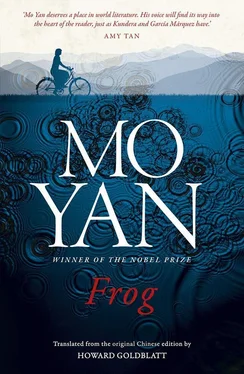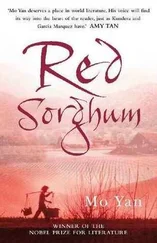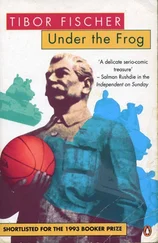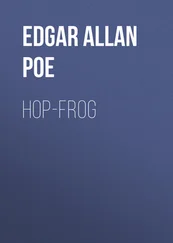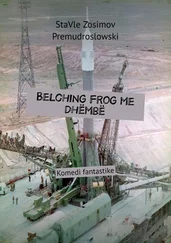Old Wang the cook came out, his hands flour-dusted, and was stunned by what he saw. (My god, that’s flour on his hands! In those days, the only people who ate in the kitchen were the principal, our political instructor, and two locally stationed commune cadres.) What are you kids doing? Old Wang cried out in alarm. Are you… eating coal? Who does that? Wang Dan picked up a piece and, in a tiny voice, said, It’s delicious. Here, Uncle, try it. Old Wang shook his head. Wang Dan, he said, why is a nice little girl like you acting like these wild kids? She took a bite. It really is delicious, Uncle, she said. A red evening sun was setting in the west. The two privileged commune cadres rode up on their bicycles. We got their attention, as Old Wang tried to shoo us away with his shoulder pole. The fellow named Yan — I think he was the assistant director — stopped him. With a disdainful wave of his hand and a sour look on his face, Old Wang stormed back into the kitchen.
The next day in school we nibbled on coal while listening to Teacher Yu’s lesson, our mouths smeared black, coal crumbs in the corners. The boys weren’t the only ones either. Wang Dan taught even the girls who’d been absent the day before how to eat it. Old Wang’s daughter, my future wife, Renmei, enjoyed it more than anyone. Now that I think about it, she probably had a gum disease, since her mouth bled as she chewed. After writing several lines on the blackboard, Teacher Yu turned back to the class and asked her son, Li Shou (Hand): What are you kids eating? It’s coal, Ma. Want some, Teacher Yu? called out Wang Dan, who sat in the front row, a lump of coal in her hand. Her voice was like that of a kitten. Teacher Yu stepped down from the podium and took the lump from Wang Dan, holding it up to her nose either to smell it or get a closer look. She didn’t say anything for a moment then handed it back. Today we’re on lesson six, class, ‘The Fox and the Crow’. The crow found a piece of meat and was proud of herself, perched high up in a tree. From under the tree, the fox said, Crow, you have such a beautiful singing voice you put all the other birds to shame. Swooning over the flattery, the crow opened her beak to sing and, ha, the meat fell right into the fox’s mouth. The teacher led us in reading the story aloud, which we did with our black-as-crow mouths.
Teacher Yu was an educated, out-of-towner who followed the local custom by giving her son the name Shou (Hand), using his father’s surname, Li. Li Shou did well enough in the exams to be admitted to medical school. After graduation he returned to the county health centre as a surgeon. When Chen Bi lost four fingers while cutting hay, Doctor Li was able to reattach three of them.
Why did Chen Bi have a big nose that was so different from everyone else’s? Probably only his mother can answer that question.
His father, Chen E (Forehead), with the style name Tianting (Middle of the Forehead), was the only man in the village with two wives. A well-educated man, he came from a family that had farmed a hundred acres of prime land, run a distillery, and owned a business in Harbin before the establishment of the People’s Republic. Chen’s first wife, a local, had borne him four daughters. He fled north just before Liberation, but was brought back from the northeast in the custody of Yuan Lian and a pair of militiamen around 1951. He had fled alone, leaving his wife and daughters at home in the village, but brought another woman back with him. This woman, who had brown hair and blue eyes and looked to be in her early thirties, was called Ailian. She carried in her arms a spotted dog, and since she and Chen E had married before Liberation, it was perfectly legal for him to have two wives. Poor, unmarried village men were upset that Chen had two wives and half jokingly asked him if they could share one of them. Chen could only grin in response, a look somewhere between laughing and crying. The two Chen wives lived in the same house at first, but since they fought like cats and dogs, Chen received permission to put his junior wife up in two rooms next to the school, given that the school buildings had once housed his family’s distillery, which meant that the two rooms counted as his property. He reached an agreement with the women that he’d divide his time between them. The dog the light-haired woman had brought with her was tormented to death by village mongrels, and not long after Ailian buried it she gave birth to Chen Bi. People liked to say that he was a reincarnation of the spotted dog, which might explain his ultra keen sense of smell. By that time, my aunt had returned from the county seat, where she’d gone to learn the newest methods of midwifery. She became the first professional midwife in the entire township. That was in 1953.
In 1953, villagers were adamantly opposed to new midwifery methods, thanks to rumours spread by old midwives, who said that children born through these methods were prone to be arthritic. Why would they spread such rumours? Because once the new methods caught on, they’d be out of work. Delivering a baby at the mother’s home meant a free meal, a pair of towels, and a dozen eggs. Whenever these women entered the conversation, my aunt — Gugu — ground her teeth in anger. She could not begin to calculate how many infants and pregnant women had died at those old witches’ hands. Her descriptions of their methods were chilling: they grew long fingernails, their eyes emitted green will-o’-the-wisp-like glimmers, and their breath stank. She said they pressed down on the mother’s belly with rolling pins and stuffed rags in their mouths to keep the foetuses from coming out there. They knew nothing about anatomy and were totally ignorant of a woman’s biological make-up. When they encountered a difficult birth, according to Gugu, they crammed their hands up the birth canal and pulled with all their might, sometimes actually wrenching the womb out along with the foetus. For the longest time, if I’d been asked to compile a list of people most deserving to be lined up and shot, I’d unhesitatingly say: the old midwives. Gradually I came to understand why Gugu was so prejudiced against them. Crude, ignorant old midwives certainly did exist, but experienced old midwives who, through their own experience, had a keen grasp of the secrets of a woman’s body, existed as well. Truth be told, my grandmother was one of those midwives, one who advocated a policy of interfering as little as possible into the process. Her approach could be characterised as ‘the melon will fall when it is ripe’. In her view, the best midwives simply offered encouragement as they waited for the foetus to emerge, then cut the umbilical cord, sprinkled on some lime, wrapped the child, and that was that. But she was not a popular old midwife, considered by some to be lazy. Those people seemed to prefer women whose hands were constantly busy, who kept running in and out of the room, shouting and carrying on; those old midwives perspired as much as the woman in labour.
My aunt was the daughter of my great-uncle, who had served as a doctor in the Eighth Route Army. He’d entered the army as a specialist in traditional Chinese medicine, but then had been taught Western medicine by the Canadian Norman Bethune, whose subsequent death from blood poisoning hit him so hard he fell desperately ill. He told his superior he wanted to see his mother before he died, a request that was granted so he could recuperate. Gugu’s grandmother was still alive at the time, and the minute he walked through the door he was greeted by the familiar smell of mung bean soup. His mother had washed the pot and started a fire to make the soup, and when her daughter-in-law came up to help, she pushed her away with her cane. My great-uncle sat in the doorway waiting impatiently. Gugu said she was old enough then to remember such things, and when she was told to greet her father, she ran behind her mother to peek at him from there. She’d often heard her mother and grandmother talk about her father, whom she was now meeting for the first time, and to her he was a stranger. She told us how he sat in the doorway, sallow-faced, his hair long, fleas crawling up his neck, tufts of cotton wadding peeking out through tears in his tattered lined coat. Gugu’s grandmother — my great-grandmother — was in tears as she worked at the stove. When the soup was finally ready, Great-Uncle eagerly picked up a bowl and began slurping, despite the mouth-burning heat. Son, his mother said, slow down. There’s more in the pot. Gugu said his hands were shaking. He ate a second bowl, and his hands stopped shaking. Sweat ran down the sides of his face. Signs of life showed in his eyes as the colour returned to his face. Gugu said she could hear his stomach rumble, the sound of a millstone turning. An hour or two later, Gugu said, her father went to the outhouse, where he emptied his bowels, almost taking his intestines along with the loose mixture. That’s when his recovery began, and within two months he was his old, vigorous self again.
Читать дальше
